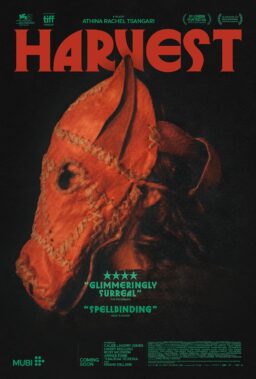Q. “My Big Fat Greek Wedding,” cost only $5 million to make and is on it’s way to grossing $150 million. Is this THE most successful film ever made or have there been any films topping it in terms of “total gross/production cost?” (Eric Schmidt, New Berlin WI)
A. “The Blair Witch Project” had a budget of $35,000 and grossed well over $150 million.
Q. “My Big Fat Greek Wedding” is dedicated to Jon Anderson. What can you tell me about him? (Susan Lake, Urbana, IL)
A. Jon Anderson, a gifted and much-loved stage manager at Second City in Chicago, was married to actress Christina Dunne, a former roommate of the film’s writer and star, Nia Vardalos. He died tragically, of symptoms associated with the flu, about three years ago. His father, Jon Anderson, is a legendary Chicago journalist.
Q. I live in Phoenix but lived in LA for years, and drove to and from Phoenix and Las Vegas many times. Thus, I fail to see why such road trips in movies (“Banger Sisters” and others) are usually on nonexistent, desolate, two lane roads. Is it to emphasize the bleakness and emptiness of the desert? Is it a semi-accurate homage to “Psycho” (1960)? Is it western film noir? Certainly most of the characters in such movies would appreciate the existence of Interstates 10 and 15. (Mike Galloway, Phoenix AZ)
A. Top ten reasons they use back roads: (1) More colorful; (2) Meet weirdos and coots along the way; (3) Can he shot anywhere; (4) Remote roads can be closed off for stunt driving, but freeways can’t be; (5) Gas stations have one attendant, no customers, saving on extras; (6) Two-lane roads go better with the vintage convertibles that many movie heroes drive; (7) If you get in trouble, you’re on your own; (8) Long shot from high angle shows one car on lonely road, while on a freeway you couldn’t single it out; (9) Wild animals are plausible if required; (10) Nudity not a problem.
Q. I recently saw “About Schmidt,” starring Jack Nicholson, at the 40th New York Film Festival. I’m a 20 year old male film studies major, but couldn’t help myself from shamelessly bursting into tears at the end of this film, the first time I have ever cried at the movies. When was the last time you cried at a movie? (Brian Betancourt, Columbia University, New York NY)
A. At the end Philip Noyce’s “Rabbit-Proof Fence,” at the Toronto Film Festival. Both films open later this autumn.
Q. I recently wrote a review on IMDb.com for “Accidental Tourist” and I found myself mentioning Edward, the charming dog in the film. Does the Answer Man have any favorite movie dogs? (Jeff Leach, Keene NH)
A. I’m torn between Verdell, played by Jill in “As Good as It Gets,” and Docky, who played the unfortunate dog in “There's Something About Mary.” There is also the telepathic dog named Blood in “A Boy and his Dog.”
Q. Why don’t studios repeat the title of the film in the end credits? I often turn on a movie after it has started on TV and never find out what movie I am watching so that I can rent the DVD and see the first part that I missed. (Paul Cady, Oak Park IL)
A. This is pure common sense and I expect your suggestion to be adopted immediately.
Q. In your review of “Sweet Home Alabama,” you note the La-Z-Boy reclining rockers in the home of Reese Witherspoon’s parents, and then write: “La-Z-Boy: the sign of a home where the man makes the decisions.” If the La-Z-Boy company doesn’t license this slogan from you, then they are not the shrewd organization I’ve grown to know and love. Here is a corollary to your observation: A La-Z-Boy in anything referred to as “the rumpus room” doesn’t count. And how do you know for sure that the woman makes all the decisions in a relationship? You walk into the house and it’s not immediately obvious where the TV is. (Andy Ihnatko, Norwood, MA)
A. Thank you for the photo of your tastefully-appointed living room, with the old NeXTCube UNIX workstation serving as an end table. I also enjoyed the colorful aquarium made from a recycled Macintosh. Is there a Mrs. Ihnatko?











